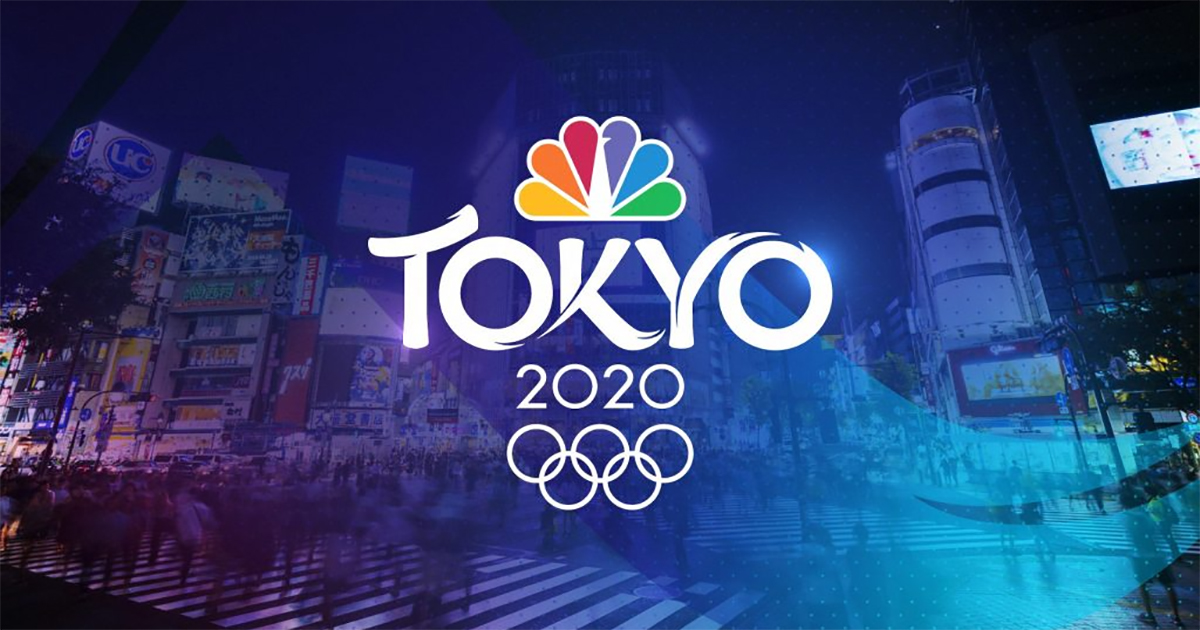
Tokyo 2020 has banned all spectators from the Olympics, following the extension of state of emergency pandemic measures in Japan.
According to Theo Andrew in Sports Business, Tamayo Marukawa, the Olympics minister, made the announcement on July 8 after the Games’ five organizing bodies — the local organizing committee, the Japanese government, the Tokyo metropolitan government, the International Olympic Committee and the International Paralympic Committee — met to discuss the impact of the extended restrictions.
READ MORE: Tokyo 2020 bars spectators after state of emergency extended (Sports Business)
The Japanese government extended the state of emergency in the capital and surrounding prefectures from July 12 to August 22, two weeks after the Games conclude on August 8. Bars and restaurants are requested to suspend alcohol sales under the measures. Organizers had planned to allow venues to be filled up to 50% capacity, with a maximum of 10,000 Japanese spectators and no overseas fans. A surge in COVID-19 cases and the low rate of vaccinations forced them to reconsider.
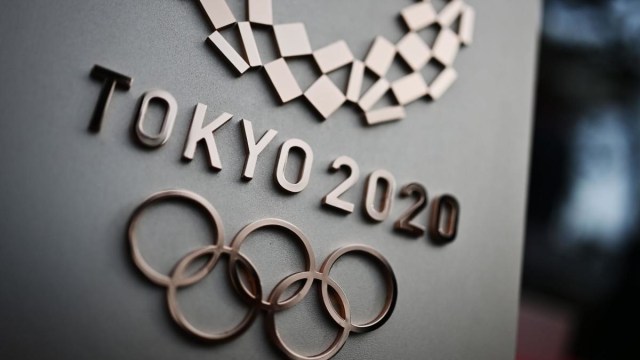
The move eliminates a key component of live sports broadcasts and could give the competitions an eerie feel. Writing in CNN Business, Oliver Darcy commented that the absence of fans effectively makes this year’s Olympic Games a made-for-television event while also rendering it more difficult to make for television.
“It’s a hell of a challenge that they face,” said Bob Costas, the legendary sportscaster who fronted 11 Olympic Games before announcing his retirement in 2017. Costas, who is now a CNN contributor, described the atmosphere and energy emitted from fans as a key element of the Olympics and suggested that stripping the events to only the raw competitions would be reflected in viewership numbers.
“Now does this mean people won’t watch? Of course they’ll watch,” Costas said. “But will they watch in the same kind of numbers than if this had the usual texture? Probably not.”
READ MORE: Olympics 2021: NBC faces ‘hell of a challenge’ producing Tokyo Games after spectators are barred from competitions (CNN Business)
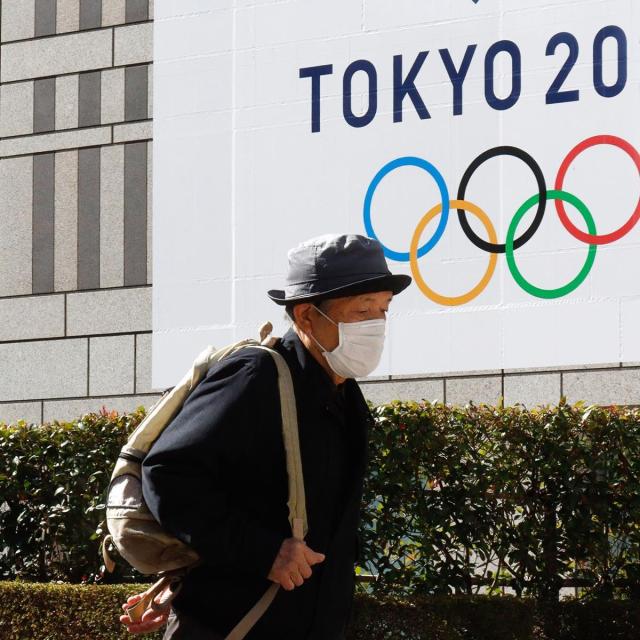
With the approach of the postponed 2020 Tokyo Summer Olympics, beginning July 23, research company Ipsos asked 19,510 people in 28 countries their views on the event. Should it go ahead? How interested are they personally? What is the impact of the Games on wider society?
Overall, the researchers found that support for the Olympics taking place in summer 2021 is muted, due in part to concerns over COVID-19. On average across the 28 countries surveyed, 43% said the event should go ahead, compared to 57% who said it shouldn’t. There is greatest support for the Olympics taking place as scheduled in Turkey (71%), Saudi Arabia (66%), Russia (61%) and Poland (60%).
Those in host nation Japan are among the most doubtful: 22% said the Olympics should go ahead while 78% said it shouldn’t. South Korea showed the lowest levels of support for the Games taking place (14%).
READ MORE: From highs to lows: interest in the Tokyo Olympics varies around the globe (Ipsos)
However, 62% worldwide agree that the Olympics will be an important opportunity for the world to come together following the pandemic, according to ipsos.com. Turkey and Saudi Arabia again show the highest levels of agreement with this statement (81% in both). South Korea, Japan and Germany are the only countries where fewer than 50% say that the Olympics presents this opportunity to come together.
The Most Complete Set of Rights of any Sport
NBCUniversal is set to present 7,000 hours of coverage of the Tokyo Olympics by utilizing two broadcast networks, six cable networks and multiple digital platforms, serving both English- and Spanish-speaking language viewers, making it “the biggest media event ever.”
READ MORE: Finally! NBC Olympics Gears Up for Its Coverage of the Tokyo Games (NAB Amplify)
At a press event held in preparation for the Games, NBC Olympics Primetime Host Mike Tirico said, “The athletes are so primed and ready to get this going. After all, your Olympic plan is a four-year monster. You lay it out, then you get there. It’s really hard to restart that operation when it comes to a crashing halt, as it did for so many of these athletes.
“For me, this is a thrill. I grew up watching Jim McKay and Bob Costas do this. The opportunity in Pyeongchang was exciting. Now, I feel like an old veteran; I’ve got a couple Olympics under my belt. I’ve prepared for Tokyo for about three years,” said Tirico.
Jeff Shell, CEO of NBCUniversal commented, “I think for the world it’s really important. I think for the country it’s really important. I think for NBC it’s part of the heartbeat of our company. It is something we’re very proud of: our relationship with the Olympic movement and the IOC. We’re really proud of these athletes every four years to spend their lives and their heart and soul preparing for this one moment. Sometimes it’s 10 seconds long. I’m just proud to be a part of it.”
“I think for the world it’s really important. I think for the country it’s really important. I think for NBC it’s part of the heartbeat of our company.”
— Jeff Shell, CEO, NBCUniversal
Mark Lazarus, Chairman NBCUniversal Television and Streaming said, “If you go back to the first Games that I was involved with, which was in 2012 in London, that was the first Games that we streamed everything live. That had never been done before. We then went on, and with our partners, our sister company, Comcast, in 2016 they created the creating the X1 platform, that really showcased how an Olympics could be covered so completely and universally on a platform like that.
“Now we expand to what we’ve been doing more with Telemundo in Spanish, all of our cable networks, and now we bring it to Peacock. We’re able to continue as the Games have grown and expanded, so have we, and so have how consumers utilize it.
“Our job is to pick the best platform for each piece of content, while trying to take the incredible reach that the Olympics have, the incredible reach that the NBC broadcast network has, and put it on the biggest stage. It’s a phenomenal asset,” said Lazarus.
“We have a great set of rights. We have the most complete set of rights of any sport that we have on any of our networks and that any network really has. Essentially, every technology known today or to be invented between now and 2032, that gives us the ability to try new things and to experiment. That’s what we’ll be doing across the platforms.”
Pete Bevacqua, Chairman, NBC Sports added, “In many ways this is our Olympics, too, in terms of our NBC Sports team. We are geared up for this. We have spent the better part of the last 14 months learning how to do things differently, taking those skills that now will absolutely apply themselves as we tackle what should be — I think — one of the most interesting and special Olympic Games ever.
“For us, just like any sporting event, obviously the Olympics are bigger and more international, but safety of our staff, following protocols first and foremost. We are making sure we have an unbelievable plan in Tokyo. We’re also going to be here at 30 Rock. We’re going to be in our sports headquarters in Stamford, our Telemundo offices in Miami. In each of those instances, we will be incredibly prepared,” said Bevacqua.
Investment in Virtualized Technologies to Stay on the Air
Under the International Olympic Committee (IOC) umbrella, Olympic Broadcasting Services (OBS) serves as the Host Broadcaster for all Olympic Games, Olympic Winter Games and Youth Olympic Games. As host broadcaster, OBS is responsible for delivering the pictures and sounds of the Olympic Games to billions of viewers worldwide. OBS produces and transmits live radio and television coverage of every sport from every venue.
For Tokyo 2020, OBS will produce more than 30 per cent more content than in Rio 2016, in more formats, to assist the world’s broadcasters in bringing the Games to more devices and platforms. OBS will be leading a significant technological transition from HD to UHD HDR, taking viewers closer to the athletes than ever before, while next generation immersive audio will transport them into the heart of the action.

To help RHBs (rights holding broadcasters) in their multi-platform strategies, OBS has extended its media server to the cloud for Tokyo 2020, enabling RHBs to access all Olympic content from anywhere in the world, as well as edit and download all the short-form content in multiple formats and profiles.
OBS has teamed up with Alibaba Group to create the OBS Cloud, a suite of cloud-based solutions adapted to demanding data-heavy broadcast workflows. OBS Cloud offers the connectivity, processing and storage capabilities required for the broadcast of the Games. Not only can RHBs access all OBS content remotely, but they are also now able to set up their own content creation, management and distribution systems within the platform.
Other innovations will be more visible to audiences when the Olympic Games go on air, such as the Artificial Intelligence (AI) based 3D Athlete Tracking technology developed in collaboration with Intel and Alibaba. This technology will offer viewers a new way to experience the action from the Athletics 100m races, taking speed analysis to the next level.
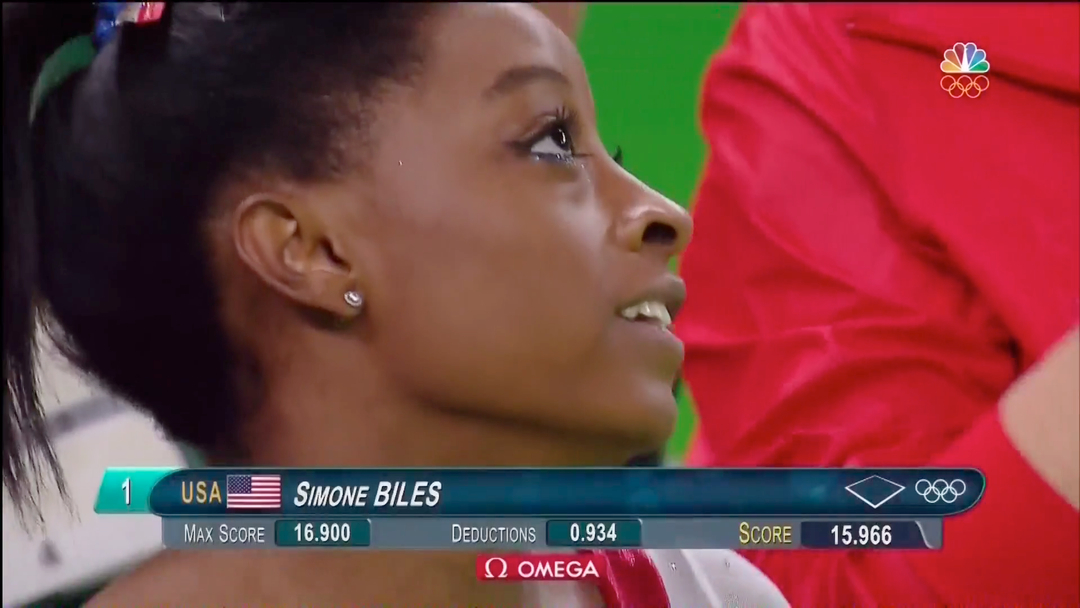
OBS will run an Automatic Media Description (AMD) pilot project based on athlete recognition and this pilot will be conducted on a select number of specifically chosen sports. OBS will combine existing metadata such as the Broadcast Data Feed (BDF) and video logs with image recognition based on athlete bib.
Additionally, OBS will use speech-to-text technology to complement and improve the tagging of media assets. Such applications will allow a faster and more efficient turnaround of workflows such as image selection, automatic searching and clipping.
OBS Chief Executive Officer Yiannis Exarchos said, “When you talk about Japan, tradition comes to mind along with technological innovation. For OBS, these Games are going to be a major milestone due to the advances we are introducing. It is going to be the first Olympic Games to be fully produced natively in UHD HDR.
“The native Olympic standard coverage will be done in 4K and this will probably take most of the equipment to fully achieve this task, but we felt we had the support of the broadcasters for this transition at Tokyo 2020,” said Exarchos.
OBS will broadcast all outputs in UHD, combined with HDR and immersive audio from the 42 Olympic competition venues (only the production for the seven outside tennis courts will remain in HD). Delivering UHD HDR content requires customized production units and workflows. Overall, OBS will utilize a total of 31 OB vans and 22 fly-away systems.
READ MORE: High Dynamic Range is Ready to Go Live (NAB Amplify)
A new full Internet Protocol (IP) infrastructure has been built to support the transport of the UHD HDR signals for the contribution network. OBS Venue Technical Operations (VTO) team has developed a set of look-up tables (LUT) in-house to maximize the quality between all cross-conversions (from/to UHD-HD and HDR-SDR).
All RHBs will receive the international signal in HD, based on the host city’s HD standards. For Tokyo, the SMPTE 292 standard is used for the production of the 1080i/59.94 HD-SDI signal. OBS will follow the 59.94 Hz specification. UHD takers will receive the international signal in UHD HDR, with 5.1.4 audio configuration. The UHD production will adhere to the SMPTE 2036-1 standard and follow the 59.94 Hz specification. The HDR standard will be Hybrid-Log Gamma (HLG).
“The adoption of remote production for these Games, accelerated by the global pandemic, is a major change compared to previous editions.”
— Yiannis Exarchos, CEO, OBS
OBS will capture the sounds of the Tokyo 2020 Olympics through an immersive 5.1.4 audio configuration that enables viewers to have a more realistic audio experience, with sound appearing to come from every direction — even from above. OBS will expand upon 5.1 surround sound by adding an overhead, and thus third dimension with the addition of four hanging ceiling microphones with heights that will be adjustable.
Two new microphones were specifically designed for this immersive sound production. In total, OBS will use 3,600 microphones (28 different models). Three immersive audio quality control rooms will support the venue production to guarantee quality consistency across all sports.
“We will introduce several innovations, both visible, such as Virtual Reality content, and behind-the-scenes, such as Internet Protocol (IP)-enabled solutions,” continued Exarchos. “Also new for Tokyo will be multi-camera replays; we will go heavily in introducing analytics, especially in digital innovations. Several innovations will take place behind-the-scenes, which will make the world of broadcast more efficient.

“At Tokyo 2020, we will be producing approximately 9,500 hours of content. This is far more than the amount produced by a traditional international broadcaster in a year. We will be doing that in just over two weeks.
“Can you imagine what it takes to archive, to manage, to stream all this content? You need tons and tons of hardware for only a few weeks. This is where the scalability of cloud technology is seemingly the answer for us. In terms of broadcasting, it is still relatively early days in the full change to cloud technology, and Tokyo 2020 will mark a first step. The Beijing 2022 Winter Olympics may then become a facilitator for its wider use.
“The adoption of remote production for these Games, accelerated by the global pandemic, is a major change compared to previous editions. Broadcasters have been forced to adapt and invest in virtualization technologies to keep TV programming on-air, while dealing with the behind-the-scenes disruptions caused by the crisis. The media industry is unlikely ever to return to the ‘old’, pre-pandemic ways of producing content. These remote capabilities and cloud-based workflows will not go away and will undoubtedly grow further,” said Exarchos.
Steady Progression Through the Phases of IP Adoption
5G has the capacity to handle large volumes of data including UHD transport with ultra low latency and higher video quality. OBS conducted its first field tests of network performance and quality from the end-user perspective on a 5G network at PyeongChang 2018 and will carry out real-condition trials of 5G technology again in Tokyo.

At the Opening and Closing Ceremonies, OBS will broadcast content from ENG cameras using a 5G network and send it back to the IBC where the speed will be measured and the overall network performance monitored. OBS is set to adopt 5G’s wireless technology further for the broadcast of the Olympic Winter Games Beijing 2022 where all the competition venues are expected to have 5G network coverage.
On the step change from HD to UHD coverage of the Games, OBS Chief Technical Officer Sotiris Salamouris said, “The change now is similar in terms of breadth, but the challenge is greater because the step between HD and UHD is much more demanding than between standard and HD. There is also the additional element of the transition from SDR (Standard Dynamic Range) to HDR (High Dynamic Range) and WCG (Wide Color Gamut), which comes with its own unique difficulties.
“The technology has reached a maturity level such that we are all confident that it is ready for the broadcast coverage of the Tokyo 2020 Games. However, this is not something that you can take lightly, especially in our own production environment, since there are so many moving parts that need to be brought together.”
“The transition from SDR to HDR and Wide Color Gamut comes with its own unique difficulties.”
— Sotiris Salamouris, CTO, OBS
Commenting on the move to an all-IP infrastructure for Tokyo 2020 Salamouris said, “In our environment and with our own very extensive and complex requirements, when it comes to signal contribution, processing and then distribution, IP, and in particular ST-2110, was probably the only technology that could scale with all our needs.
“The reason behind this is not a surprise. For many years since its inception, the broadcast industry had to develop its own bespoke technology. Broadcast scientists and engineers have been developing all the technology, the standards and the tools necessary to make the television and media industry work.
“But then, when IP-based systems became mainstream in other major industries, especially in Information and Communication Technologies (ICT), we were able to benefit from these developments also in broadcast and media production in general, enabling us to progress through the phases of IP adoption much faster, easier and in a relatively cost-effective manner.
“We no longer needed to develop all the technology by ourselves. That’s a considerable advantage. Using IP offers us more flexibility and a far higher scalability than the legacy technological stack,” said Salamouris.
MDS Allows the RHBs to Air Olympics From Home
The International Broadcast Centre is located at Tokyo Big Sight, Japan’s largest convention center, located in the Odaiba waterfront area in Tokyo Bay. There’s 40,000 sqm of functional space, housing a variety of technical and administrative facilities for both OBS and RHBs, with 118 feeds coming into the building — and 64 concurrent feeds at the busiest point on Day 2 of the Games.
21 RHBs have a base of operations at the IBC for the Tokyo 2020 Games, which represent more that 80 organizations when counting their sublicensees. OBS technical facilities mainly operate from an area called OBS Tech, which is made up of the Contribution, Distribution and Unilateral (CDU) master control room, the Transmission center, the Commentary Switching Centre (CSC) and Archive Services.
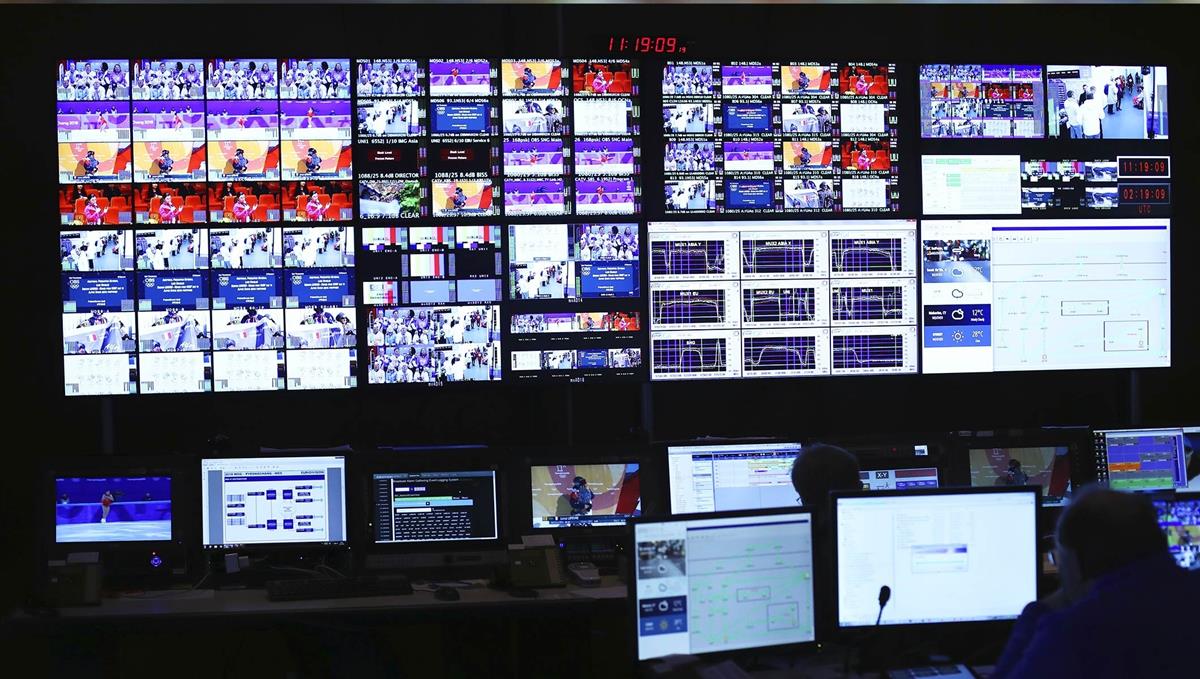
In an effort to optimize the broadcast operation and make it more sustainable for Tokyo 2020, OBS has introduced new Centralized Technical Areas (CTAs) located in key areas of the IBC. Adjacent to the RHB areas, allowing for direct cabling, these mini data centers host and centralize all technical equipment from each RHB in a dedicated, secure area with specific cooling capacity.
OBS offers several turnkey solutions for RHBs looking for fully produced programming and cost-effective alternatives. For instance, the Olympic Channel News (OCN) offers a variety of Olympic highlights, features and interviews that can be broadcast in the form of a 24/7 channel, while providing broadcasters with the option of adding their own organization’s logo and including commercials.
The Multi-channel Distribution Service (MDS) is another example of a complete solution that allows RHBs to air nearly the entire Olympics from their home countries, thereby reducing their costs. Distributed globally by satellite, MDS offers 15 fully programmed, ready-to-air sports channels (including the OCN).
For those broadcasters interested in streaming the Games on digital and mobile platforms, while keeping the development costs low, OBS also provides a ready-to-deploy, fully personalized digital application with its Olympic Video Player (OVP) that offers live streaming and on-demand video of every competition session.
For the web, the OVP offers an embeddable player, as well as a number of widgets that can be set up to form a dedicated RHB website. For smartphones and tablets, the OVP is a stand-alone downloadable app that offers, in addition to live and recorded Olympic content, start lists, results and other key data.


